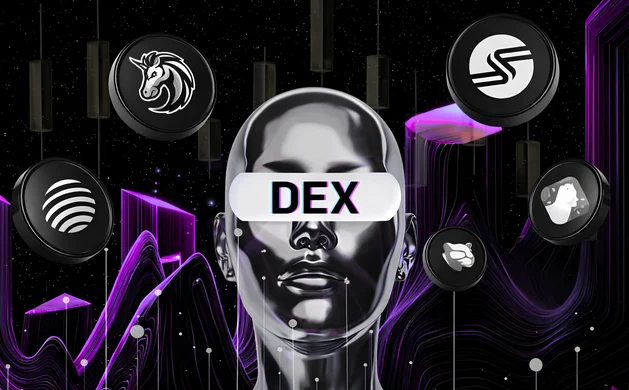What is Babylon Chain?

Summary: Babylon Chain allows Bitcoin holders to stake their BTC to secure Proof-of-Stake (PoS) chains without losing custody of their coins. This project introduces Bitcoin as a powerful collateral asset, adding a third use case beyond being a store of value and a means of payment.
Following a multi-phase rollout, Babylon has already seen strong demand, with nearly 23,000 BTC ($1.52 billion) staked in Phase 1. With an upcoming airdrop and token launch, Babylon is already redefining Bitcoin’s role in decentralized finance.
What is Babylon Chain?
Babylon Chain, launched in 2022 by Fisher Yu and David Tse, allows Bitcoin holders to secure Proof-of-Stake (PoS) chains by staking their BTC while keeping it on the Bitcoin chain. The project uses a trustless and self-custodial staking model, meaning users retain full control of their Bitcoin without relying on bridges or third parties like exchanges.
The platform is launching in phases to ensure a smooth rollout and minimize risk, starting with Phase-1, which initially had a 1,000 BTC cap but recently expanded to 23,000 BTC. Future phases will enable multi-staking, allowing Bitcoin to secure multiple PoS chains. This phased approach helps Babylon refine the system and tackle challenges before scaling.
According to the founders, Babylon unlocks a third use case for Bitcoin, beyond just holding (store of value) and payments, by allowing it to actively secure decentralized networks for yield. Babylon Chain's ecosystem is still being developed actively, with integrations from and into projects such as Akash, Stride, Injective, Kava Network, SatLayer, and others.

How Does Babylon BTC Staking Work?
The Babylon blockchain operates as a two-sided security marketplace, where Bitcoin holders provide security for PoS chains in exchange for rewards. On one side, Bitcoin holders stake their BTC, and on the other, decentralized systems like PoS chains, Ethereum rollups, and appchains benefit from increased security.
Here’s how Babylon’s Bitcoin staking works at its current stage in late 2024:
- Bitcoin remains on its chain: You can lock your BTC directly on the Bitcoin blockchain without worrying about it leaving Bitcoin’s secure network.
- Earn points: In Phase-1, Bitcoin holders don't earn traditional staking rewards but can earn points based on their contributions to the network. These points play a role for the future airdrop.
- No slashing (yet): Initially, there is no slashing, meaning stakers won't lose their Bitcoin for violating PoS rules. This is to ensure a cautious and low-risk entry for users before the system fully rolls out slashing penalties in later phases.
- Fast unbonding: Babylon allows fast unbonding through Bitcoin timestamping, so users can withdraw their Bitcoin securely after a short unbonding period, maintaining liquidity.
- Multi-staking coming in future phases: In future phases, Bitcoin will be able to secure multiple PoS chains at the same time, providing more flexibility for Bitcoin holders to engage across various decentralized networks.

Babylon’s Technical and Economic Model
Similar to Eigenlayer's Ethereum restaking model, Babylon unlocks new economic opportunities, paving the way for Liquid Staking Tokens and yield rewards.
In Phase 2, Babylon will launch its own PoS chain, followed by Phase 3, which will extend Bitcoin staking to external PoS chains in the Cosmos ecosystem, bringing decentralized security to a wider range of networks.
Babylon overcomes Bitcoin's limitations by using Taproot-enabled cryptography like Extractable One-Time Signatures (EOTS) to enable secure, non-custodial Bitcoin staking. This lets stakers lock BTC on the Bitcoin network while helping secure Proof-of-Stake chains.
Key players in this model include finality providers (FPs), who validate blocks and ensure network security, stakers, who provide BTC for staking, and delegators, who delegate their stake to FPs for rewards.

Babylon Chain Token
The Babylon Chain token will be introduced in Phase-2 to enable staking rewards and governance participation. It will serve as the native token of Babylon's PoS chain and play a central role in the ecosystem’s growth. The token will also help expand utility beyond staking, engaging with decentralized applications (dApps) and services.
The founders promise that the transition to the future phases will be gradual but also won't take years like other projects. As soon as an official tokenomics model is released we will update this guide.
Babylon Chain Airdrop
Babylon Chain has confirmed an upcoming airdrop, and users can earn points in Phase-1 to potentially qualify. Points can be earned through various activities:
- Staking real BTC during Cap-1 and Cap-2 windows (now closed).
- Engaging with Babylon’s testnets, such as Testnet-4, by staking test tokens.
- Completing tasks on the Galxe's Bitcoin Staking Series.
The points are non-transferable and won’t be diluted by latecomers, ensuring early participants retain an advantage for airdrop eligibility, and they remain tied to your wallet even after unbonding BTC. Also, an important note is that, If you stake through an LST provider, you won't receive Babylon points directly, as the providers manage their own point distribution.

What is the Babylon Testnet?
The Babylon Testnet is a simulated environment where users can safely interact with Babylon’s Bitcoin staking protocol without using real Bitcoin. The testnet allows participants to stake, unbond, and withdraw using Signet Bitcoin, a test version of BTC with no monetary value, ensuring a secure way to test the system.
Babylon’s Testnet-4, launched in May 2024, focuses on testing the security of staked Bitcoin and user interactions with the BTC Signet test network. This phase simplifies the user experience by disabling slashing and PoS-related features, allowing users to refine their participation before the platform’s full deployment.
You can participate by requesting testnet tokens via the Discord faucet and using them for staking and unbonding activities on the Babylon's testnets.

Is Bitcoin Staking on Babylon Safe?
Babylon’s Bitcoin staking model is designed with safety in mind, but there are some important factors and risks to consider:
- Relying on PoS chain governance: The security of your staked Bitcoin still depends on the governance and stability of the PoS chain you are helping to secure.
- Limited smart contract capabilities on Bitcoin: Babylon uses Bitcoin's scripting language, which isn’t as flexible as smart contracts on other chains.
- Centralization of Finality Providers: As the Babylon network grows, there’s a potential risk of centralization among Finality Providers.
- Liquidity risks: Although Babylon offers fast unbonding, there is always the potential for delays in scenarios like heavy network congestion or cross-chain issues, which could temporarily impact access to your staked Bitcoin.

Who is the Founder of Babylon Bitcoin?
Babylon was founded in 2022 by Stanford Professor David Tse and Fisher Yu. Professor Tse is best known for developing the legendary proportional-fair scheduling algorithm for wireless communications, whereas Fisher Yu is a renowned expert in blockchain security and cryptography.
We’ve watched several interviews with the founders, including Professor Tse’s presentation at the Blockchain Application Stanford Summit (BASS), where he shared Babylon’s bold vision of bridging the gap between Bitcoin and Proof-of-Stake systems by turning Bitcoin into a staking asset to secure PoS chains, without leaving the Bitcoin network.
How Much Did Babylon Raise?
Babylon has raised over $96 million to date across multiple funding rounds. The most recent round in 2024 secured $70 million, led by Paradigm with participation from Bullish Capital, Polychain Capital, Hashkey Capital, and others.
Prior to that, Babylon raised $18 million in a Series A round in December 2023, along with an $8 million seed round in March 2023, backed by Breyer Capital and IDG Capital. Additionally, Binance Labs made an undisclosed investment in February 2024.

Bottom Line
Babylon has caught our attention with its ambition to unlock Bitcoin’s untapped potential as a staking asset, which could finally silence the critics who believe Bitcoin has no use beyond being a store of value or medium of exchange.
The demand during Phase 1, with 23,000 BTC staked in 86 minutes, shows that many share this interest, and that the team is doing something right.
While we can’t say for sure if Babylon will fully realize its vision, the pace of development, combined with a packed calendar of events and a strong online community, shows a drive to prove Bitcoin’s broader utility.

Written by
Tony Kreng
Lead Editor
Tony Kreng, who holds an MBA in Business & Finance, brings over a decade of experience as a financial analyst. At Datawallet, he serves as the lead content editor and fact-checker, dedicated to maintaining the accuracy and trustworthiness of our insights.

.webp)







